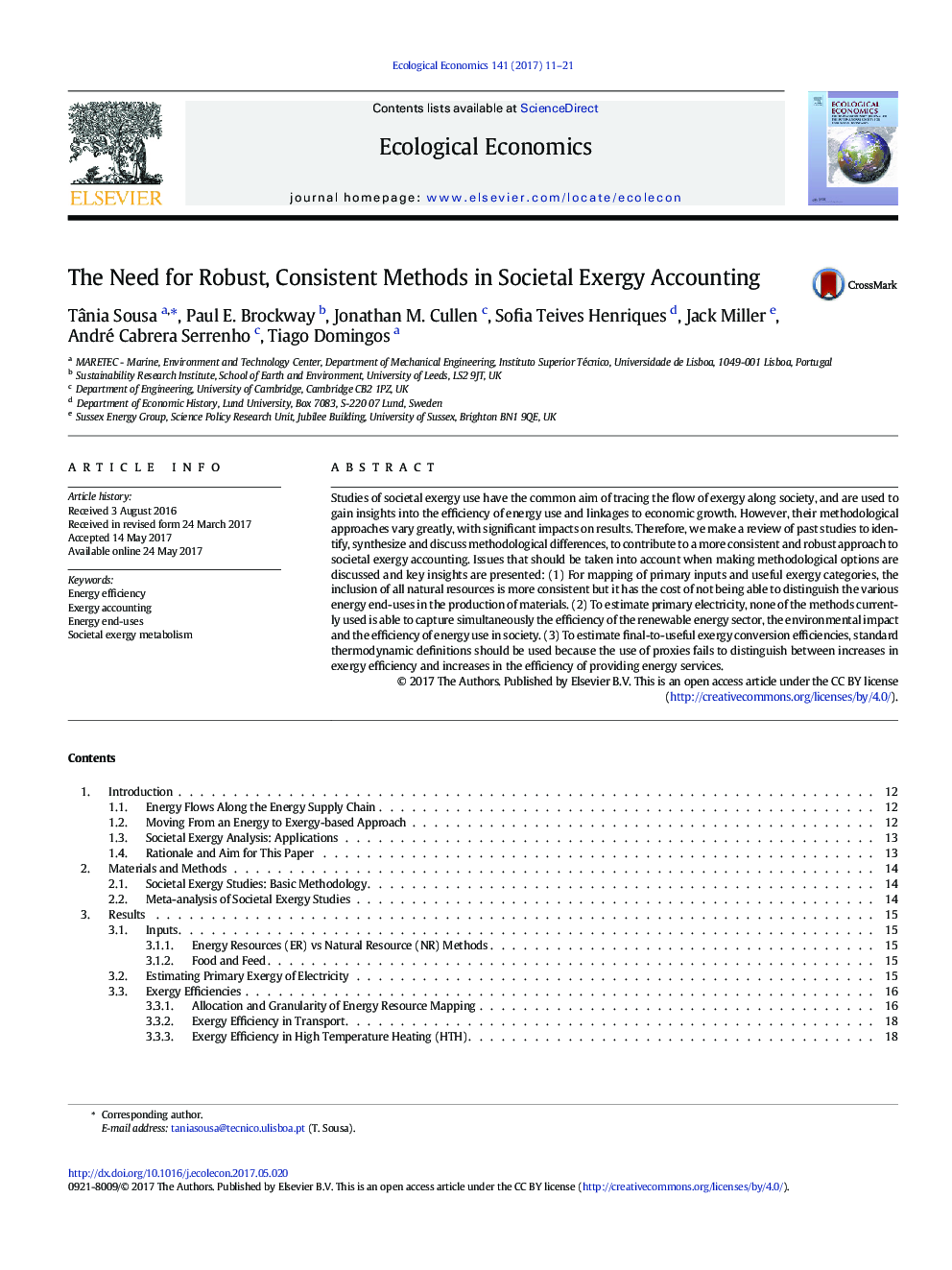| Article ID | Journal | Published Year | Pages | File Type |
|---|---|---|---|---|
| 5048645 | Ecological Economics | 2017 | 11 Pages |
Studies of societal exergy use have the common aim of tracing the flow of exergy along society, and are used to gain insights into the efficiency of energy use and linkages to economic growth. However, their methodological approaches vary greatly, with significant impacts on results. Therefore, we make a review of past studies to identify, synthesize and discuss methodological differences, to contribute to a more consistent and robust approach to societal exergy accounting. Issues that should be taken into account when making methodological options are discussed and key insights are presented: (1) For mapping of primary inputs and useful exergy categories, the inclusion of all natural resources is more consistent but it has the cost of not being able to distinguish the various energy end-uses in the production of materials. (2) To estimate primary electricity, none of the methods currently used is able to capture simultaneously the efficiency of the renewable energy sector, the environmental impact and the efficiency of energy use in society. (3) To estimate final-to-useful exergy conversion efficiencies, standard thermodynamic definitions should be used because the use of proxies fails to distinguish between increases in exergy efficiency and increases in the efficiency of providing energy services.
